Best Hungarian history movies
A curated collection of popular history movies from Hungary.
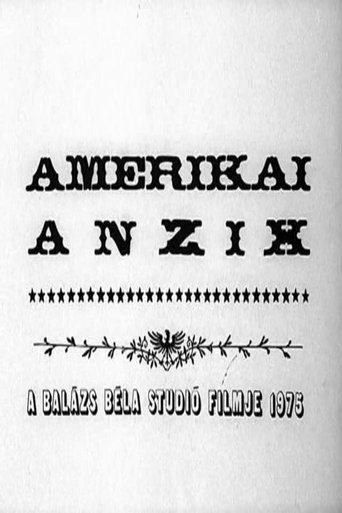
American Torso (1975)
American Torso (1975)
In the final days of the American Civil War, an emigre Hungarian military officer attempts to map the situation of the enemy. Many veterans of the 1848 War of Independence in Hungary fought on the northern side. Experienced Fiala, Boldogh who struggles with homesickness and the reckless Vereczky all experience their enforced emigration in different ways and news of impending peace elicits different reactions from them all.

Agnus Dei (1971)
Agnus Dei (1971)
Allegory of the suppression of the 1919 revolution and the advent of fascism in Hungary; in the countryside, a unit of the revolutionary army spares the life of father Vargha, a fanatical priest. He comes back and leads massacres. A new force, represented by Feher, apparently avenges the people, but only to impose a different, more refined and effective kind of repression.

Punitive Expedition (1970)
Punitive Expedition (1970)
The Monarchy leads a repressive campaign against a Serb village, where an Austrian officer was killed.
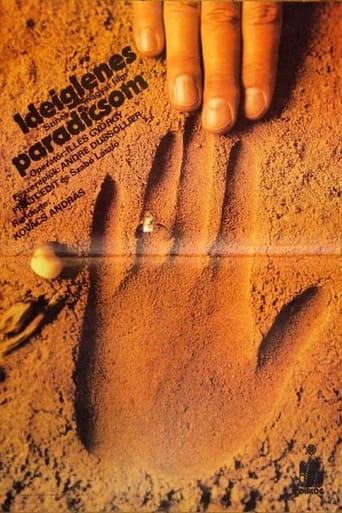
Temporary Paradise (1981)
Temporary Paradise (1981)
1943. French POWs escape through Hungary towards the Balkan. Jacques and Gérard are caught and taken to an internment camp at Lake Balaton. Jacques meets Klári here, who was abandoned by her military officer husband for her Jewish origin. Both want to have a short affair, but love unfolds between them.
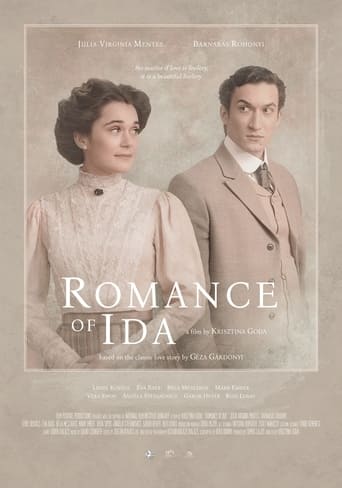
The Courtship (2022)
The Courtship (2022)
Eighteen year old Ida returns home after being raised by nuns, but her father isn't too pleased. Determined to see her married, he publishes an ad and offers suitors a generous dowry.
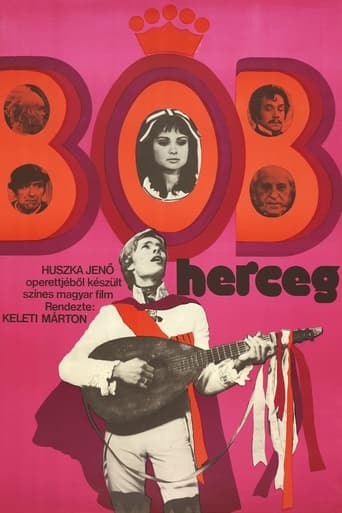
Prince Bob (1972)
Prince Bob (1972)
George, Prince of Wales mingles with the crowd in Bowie Street in disguise under the pseudonym Bob. He falls in love with the poor Uncle Tom's daughter, Annie. But to save his business, the indebted Uncle Tom promised her to the usurer Plumpudding.
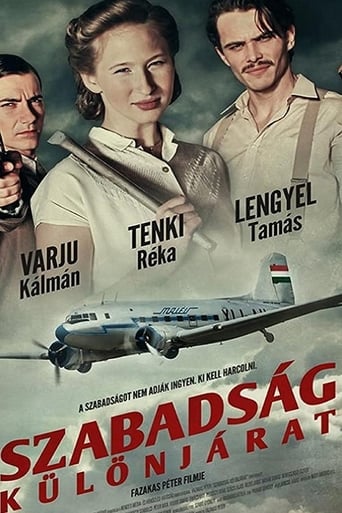
Szabadság - Különjárat (2013)
Szabadság - Különjárat (2013)
1956. Three Hungarian friends hijack a plane to escape from the Iron Curtain.
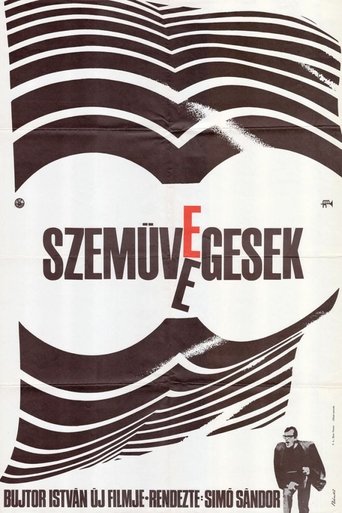
Bespectacled (1969)
Bespectacled (1969)
The young Valkó wants to plan a block of apartments that will still be modern fifty years from now. His ambitious plans are continuously rejected by his manipulative and careless superiors. So instead of the modern block of flats he only plans a bachelor apartment.
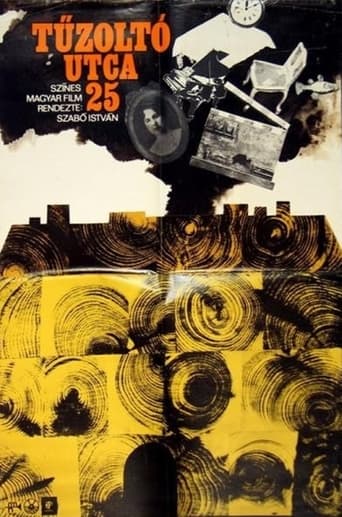
25 Fireman's Street (1973)
25 Fireman's Street (1973)
On one hot summer night, the residents of a Hungarian apartment house slated for demolition restlessly revisit their haunted pasts as they face an uncertain future. In a gently turning kaleidoscope of dream imagery, regret-laden nostalgia and painstakingly intimate detail, the looming wrecking ball pales in significance to the accumulated experiences each dreamer revisits. Pre-war prejudice, occupying Nazis and Stalinist deprivations all come and go as each tenant’s backward glance yields moments of aching sensuality, infectious exuberance and catastrophic loss.
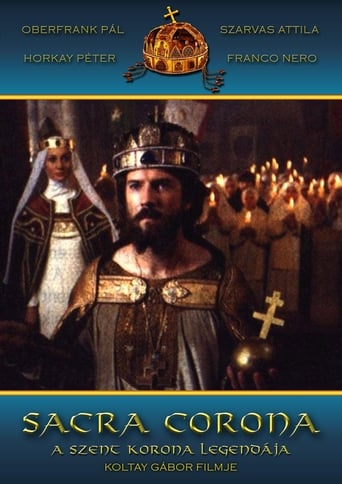
Sacra Corona (2001)
Sacra Corona (2001)

56 Drops of Blood (2007)
56 Drops of Blood (2007)
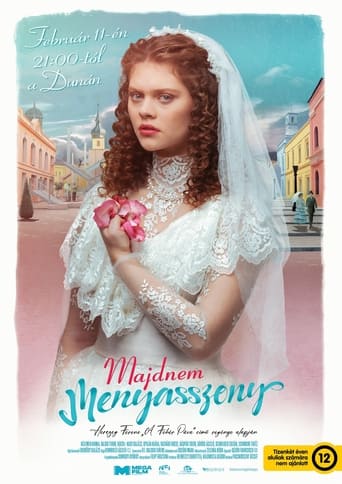
Almost a Bride (2024)
Almost a Bride (2024)
Marika is a young and beautiful girl, her family runs a fabric shop called White Peacock. Their life turns upside down when the train and the promise of the modern world arrives in their little hometown. However, not only the train arrives in the girl's life, but also two men: the rational and cunning Jenő Toll and the intelligent and dreamy Baron Pankotay. In Marika, the two men, new, strange feelings and family pressure break the usual balance. Marika must make a decision when the modern world threatens both the security and livelihood of her family. Her decision surprises everyone.
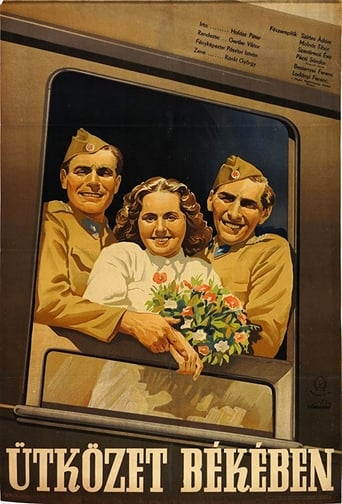
Battle in Peace (1952)
Battle in Peace (1952)
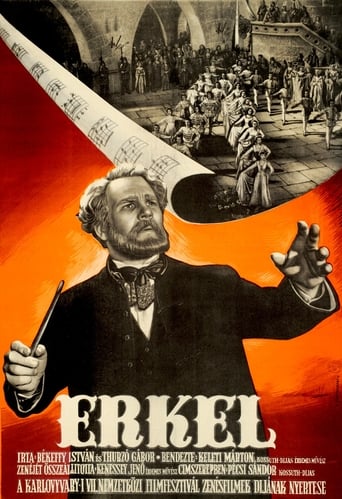
Erkel (1952)
Erkel (1952)
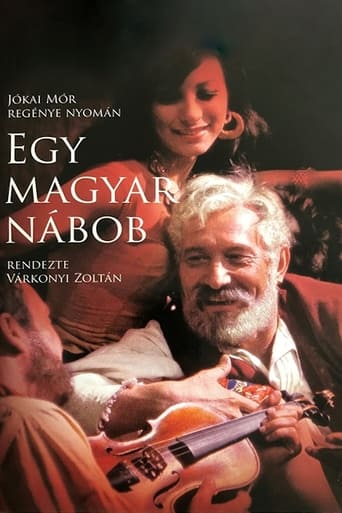
A Hungarian Nabob (1966)
A Hungarian Nabob (1966)
On the novel by Mór Jókai. The first half of the XVIII century. Several decades of life of a noble family Karpati.

Another Way (1982)
Another Way (1982)
Political and sexual repression in Hungary, just after the revolution of 1956. Passionate and determined, Eva gets a job as a journalist. There, she meets Livia and is attracted to her. Livia feels much the same, but as a married woman, has doubts and hesitations. In their work, they (and Eva in particular) bang up against the limits of telling political truths; in private, they confront the limits of living out sexual and emotional truth.
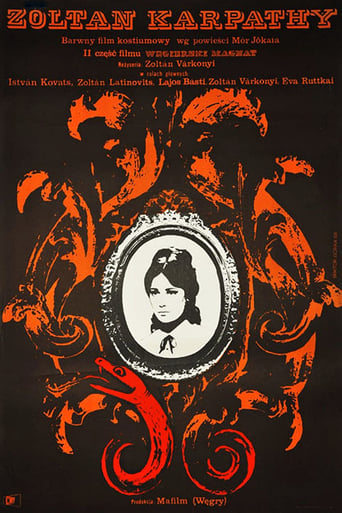
A Hungarian Nabob 2: Karpathy Zoltan (1966)
A Hungarian Nabob 2: Karpathy Zoltan (1966)
On the novel by Mór Jókai. The first half of the XVIII century. Several decades of life of a noble family Karpati.
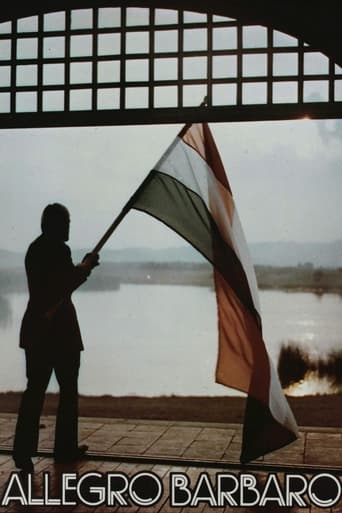
Allegro Barbaro (1979)
Allegro Barbaro (1979)
Zsadányi flees from the authorities with his goddaughter, Bankós Mari, and they escape into the forest. The film then skips ahead thirty-fold years: Zsadány and Mari are now lovers, with the sound of war in the background halting their romance. The old friends of Zsadányi have joined with the Nazis, and the landowner living with his peasants in a socialist community grows distant from them. Zsadányi is held responsible for political problems in the country, and will pay with his life.
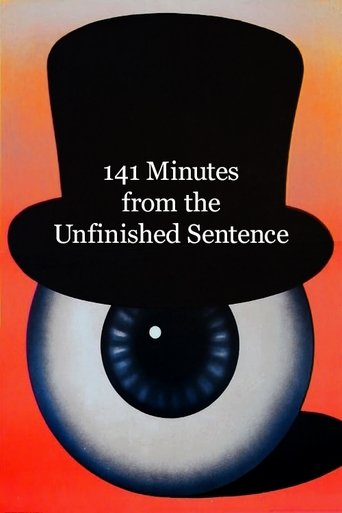
141 Minutes from the Unfinished Sentence (1975)
141 Minutes from the Unfinished Sentence (1975)
This lavishly spectacular film focuses on the character of Lorinc Parcen Nagy from the 1200-page Tibor Déry novel interwoven with numerous autobiographical elements. Lorinc Parcen Nagy is the offspring of an upper middle class family, whose life is marked by two violent deaths: the suicide of his father and the slaughter of an innocent worker. He breaks with his family and his mother in disgust; she is of weak character, a person who abandoned her own husband. He is also unable to discover the right tone with his colleagues and his lover who is an illegal party worker.
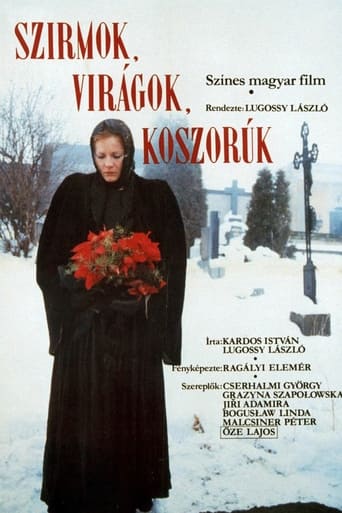
Flowers of Reverie (1985)
Flowers of Reverie (1985)
The seeming hopelessness of combatting an all-powerful government that will not tolerate political dissension is the focus of this excellent historical drama set in the mid-19th century in Hungary. In the opening scenes, Hungary has just lost its bid for independence from Austria and a Magyar officer, unable to bear the tragedy of defeat and what it means, says an affectionate good-bye to his beloved horse and then shoots the animal and himself. Two years later, Ferenc (Gyorgy Cserhalmi) is trying to eke out a living for his wife and her family -- and at the same time avoid any hint of sympathy for Hungarian independence because the Secret Police are everywhere. Just as life seems to be going well, Ferenc's former commanding officer (Lajos Oze) arrives and begins discussing revolution again -- a futile pursuit at this point in time. The next day, Ferenc is thrown into an insane asylum and everyone else is arrested as well.
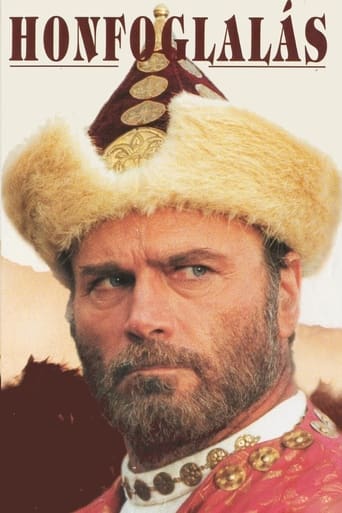
The Conquest (1996)
The Conquest (1996)
Filmed in commemoration of Hungary's 1100th anniversary and on the sites of the actual events, a cast of thousands authentically recreates the 896 AD arrival of the Magyar chief Arpad (Nero) and his seven tribes into the Carpathian basin from the steppes.
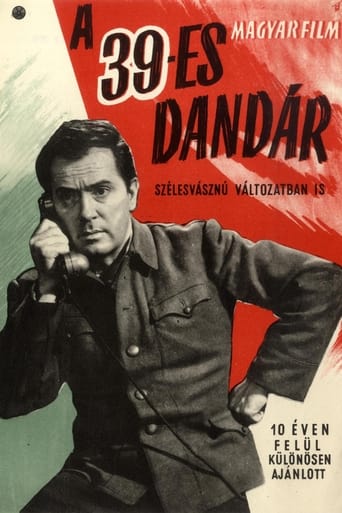
The Brigade No. 39 (1959)
The Brigade No. 39 (1959)
The spring of 1919. Karikás Frigyes reorganises brigade 39 at the Tisza. His most devoted soldiers are Korbély János and his followers, who remain faithful to the political commissioner under all circumstances.
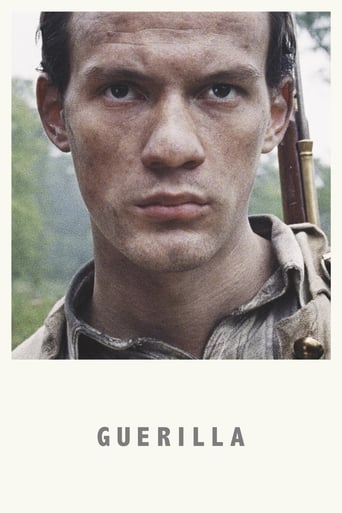
Guerilla (2019)
Guerilla (2019)
In 1849, the liberation war against the Habsburg Empire is close to its end in Hungary. Having hidden from military draft, Barnabás leaves his hometown and walks across the country to find and save his wounded brother who has been hiding with a guerilla group deep in the forest. Despite their exhaustion, lack of food or information, they are still fighting for their cause. Barnabás finds his brother alienated and distrustful. The tension between the boys further increases when they turn out to be attracted to the same nurse in the camp. Hoping he can earn his brother's trust and take him home, Barnabás decides to stay and lie about his past. In the meantime, he has to face the cruelty of war.

Miklós Akli (1986)
Miklós Akli (1986)
The hero of the story that takes place at the beginning of the nineteenth century and recalls real historical personages is Akli Miklós, the court jester of Emperor Ferenc.

The Sea has Risen (1953)
The Sea has Risen (1953)
March 15, 1848; the revolution breaks out in the town of Pest. Yet at café Pilvax, in among he revolutionary youth, there is the informer of the imperial court as well. Hearing the news of the attack led by Jellasics, the inhabitants of the villages pour into the national army, and Hajdú Gyurka also escapes from his landlord. Petőfi is there at the camp of the revolutionaries, raising them to enthusiasm with his poetry.
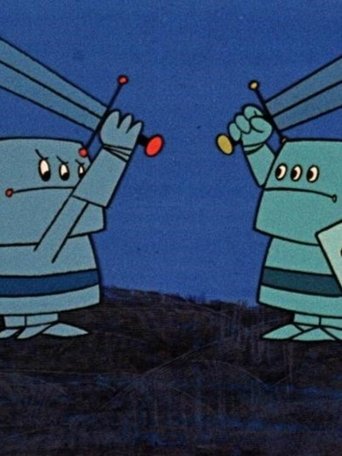
Homo faber - We have tools (1965)
Homo faber - We have tools (1965)
This essay-film is a historical crash-course which spans the millennia from the stone age to the conquest of space in the 1960s.
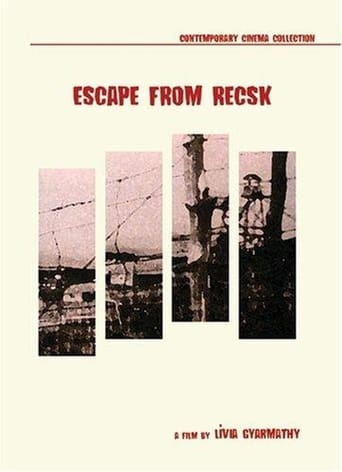
Escape (1997)
Escape (1997)
Budapest, 1948. Gyula Molnár, interpreter to the Supervisory Committee of the Allied Powers, is carried away from a party by plain-cloth police investigators. Recsk, 1950. Molnár, having attempted an escape and with a wound made by a bullet in his neck - is doggedly trying to get into the brigade of brick-layers, as escape is easiest from there.
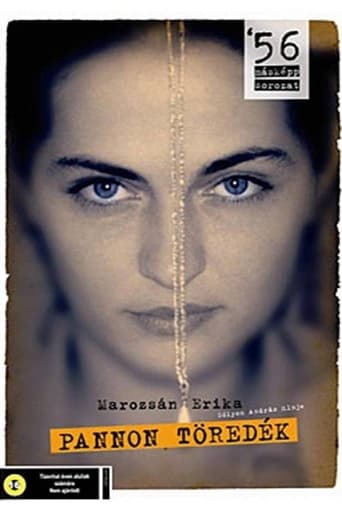
Hungarian Fragment (1998)
Hungarian Fragment (1998)
Peter falls in love with Lena, a Bulgarian female student in the days of the 1956 revolution. They were both involved in the events of the Revolution, enthusiastically recount their experiences of an American journalist. The boy's parents leave the country, but he did not go with them.
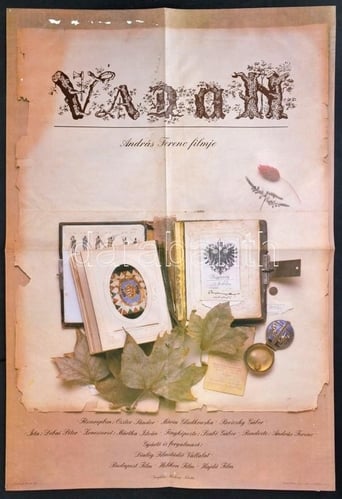
Wild (1988)
Wild (1988)
1859. Exploiting the Austrian-French-Italian conflict, Kossuth sends Batiszy Kristóf back from the emigration to organize the Hungarian Legion. Batiszy's company gets into trouble, Austrians are waiting for them, Hungarian authorities chase them, people stand still. Demolition of the troop is the task of Görgényi László chief district administrator, who used to be an officer in the revolution once.
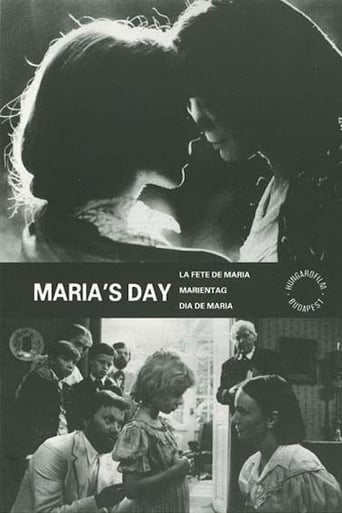
Maria's Day (1984)
Maria's Day (1984)
The Hungarian Maria's Day is set in that most fateful of years, 1848. The incredible changes and reverses in European politics and culture exert a potent influence on one aristocratic Hungarian family. Losing virtually everything in the way of creature comforts, the family tries to keep up appearances. Eventually every member of the clan falls victim to illness, syphilis and their own headstrong foolishness. The parallels drawn by director Judith Elek between the dissipation of 19th century Hungarian aristocracy and the corruption of Communist ideology in modern times are inescapable.